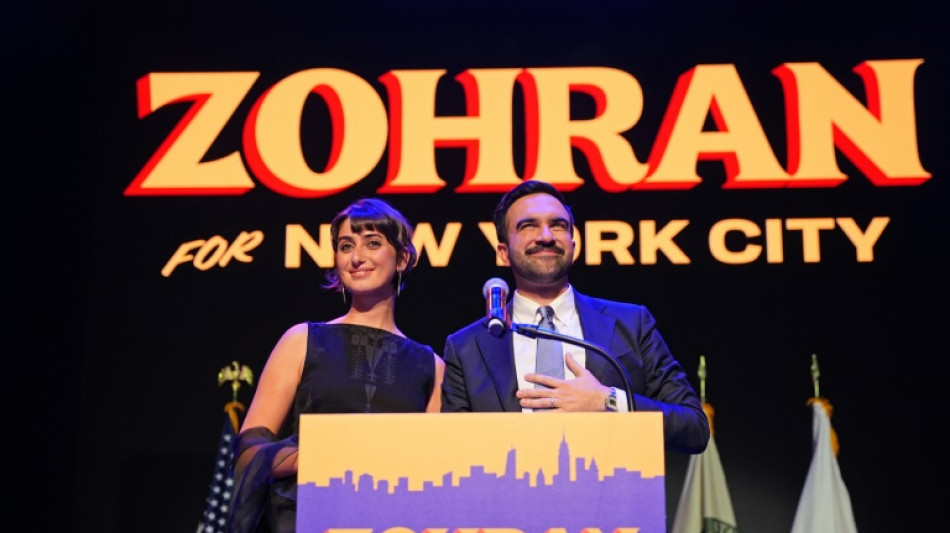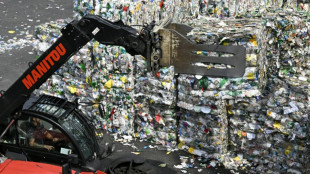

'Our brother-in-law': Arab world embraces New York's new mayor
The newly elected mayor of New York City, Zohran Mamdani, is married to Rama Duwaji, a woman of Syrian descent. For many in Syria, that practically makes him family.
That he's also a Muslim and a supporter of the Palestinian cause doesn't hurt either, and his election victory has inspired warm feelings and an outpouring of humour in the Arab world.
"I love how Syrians are now calling Zohran Mamdani our brother-in-law," wrote Karam Nachar, editor-in-chief of Al Jumhuriya, an independent Syrian media outlet.
"The poor man thought he was marrying one Syrian woman! No, habibi Zohran, you belong to the entire nation now."
Mamdani's wife Duwaji, a 30-year-old illustrator and designer, was born in Texas to Syrian parents and grew up partly in Dubai. This has prompted many Syrians keen to share in the joy of his win to adopt him as one of their own.
Abdel Karim Bakkar, a Syrian scholar with more than three million Facebook followers, said he was "thrilled that the new mayor of New York City is our brother-in-law, but even more thrilled that he speaks for the marginalised, the working class, and the poor".
Uganda-born Mamdani will become New York City's first Muslim and socialist mayor when he takes office in January, and in his victory speech he responded to US President Donald Trump's anti-immigration platform by celebrating the Big Apple's diversity.
- Knafeh and bodega cats -
In a viral campaign video showing the 34-year-old addressing New Yorkers in fluent Levantine Arabic, he grins and pours himself a glass of mint tea: "Now, I know what you're thinking, I might look like your brother-in-law from Damascus."
He savours a slice of Palestinian knafeh -- the syrupy dessert made of soft cheese and shredded pastry -- and pitches his candidacy to New York's immigrant communities.
"Even if I can't convince your uncle that the Knafeh Nabulsi from Steinway is better than the one in New Jersey, I promise to do everything I can to help you open your small business, pay your rent, and build your future here," he said.
Another clip showed Mamdani at a bodega -- the small convenience stores in the city that are often owned by Arabs -- talking to a cat named Egypt and promising the shop owner a rent freeze in near-perfect Egyptian.
In Nablus, in the occupied West Bank, 26-year-old Palestinian student Saleh, who did not give his last name, called Mamdani's win "incredible".
"A Muslim mayor in a city with more Jewish residents than Tel Aviv, that's crazy," he said.
- 'A bit of hope' -
Rami Kukhun, another Nablus resident and humanitarian worker, said the election had given him "a bit of hope".
"All the attention on Palestine... on what's happening in Gaza, might eventually lead to political outcomes that, directly or indirectly, benefit Palestinians," he said.
In Iran, Mamdani's victory received wide coverage in local media, which highlighted his Shiite background -- the dominant branch of Islam in the country.
Elsewhere in the region, some saw in Mamdani's mayoral feat an opportunity to reflect on politics in their own countries.
In Tunisia, where critics accuse President Kais Saied of cracking down on civil liberties, former radio host Haythem El Mekki said Mamdani's remarks about welcoming migrants "would earn him twenty years in prison" along with "charges of conspiracy".
"You have every right to denounce the hypocrisy, racism, and injustice of the West," El Mekki wrote to his 225,000 Facebook followers. "But ask yourself: do you and your country truly live up to those values?"
Mamdani was born in Kampala and later lived in Cape Town, South Africa before migrating with his Indian parents, filmmaker Mira Nair and scholar Mahmood Mamdani, to the United States, where he became a citizen in 2018.
burs-iba/bou/dc/smw
F.Villa--MJ




